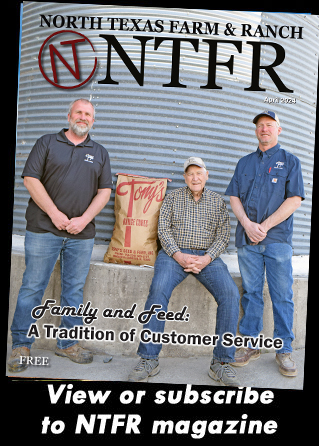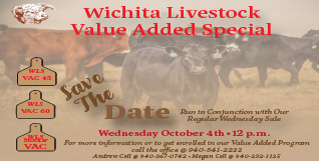HOME
No Foot, No Horse – Surgical Conditions of the Equine Foot
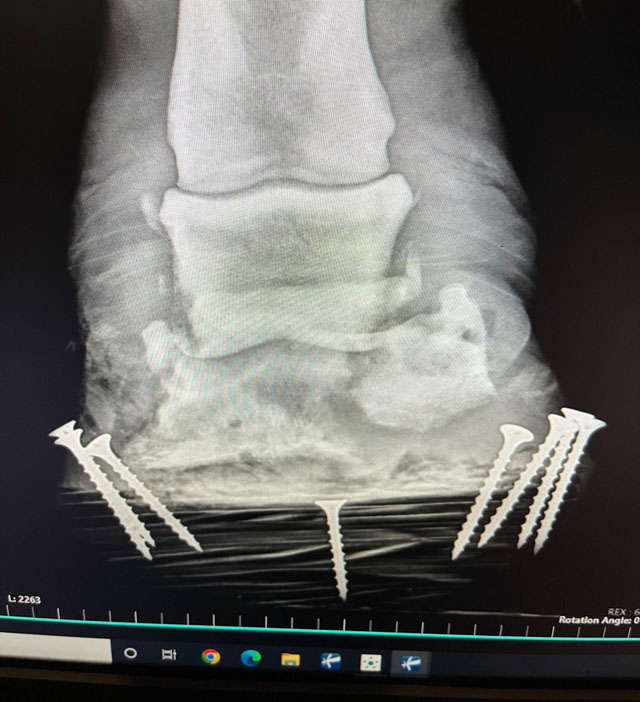
By Dr. Garrett Metcalf, DVM
There is a wise old saying “No foot, no horse,” and that is absolutely true. Horses of all breed, discipline and size must have good healthy feet or they will suffer poor performance, chronic pain or worse, succumb to diseases of the foot. There are several medical conditions that require surgical treatment within the hoof wall of the horse and this article will highlight the most common conditions that require surgical treatment and specialty farrier care.
Foot Abscesses
Foot abscesses are a very common issue that nearly every horse may experience at some point in their lifetime. Abscesses are often minor issues that can be easily corrected by a farrier or veterinarian getting access to the abscess to allow drainage but they can be rather debilitating and sometimes rather serious. Abscesses in general are localized pockets of infection that found its way into the sole or white line of the foot. These abscesses often form because there is some structural abnormality of the foot, trauma that led to bleeding under the sole or improper hoof care that has led to abnormal forces being applied to the foot and of course, the old hot nail. For example, trimming of the foot without relieving enough sole pressure can lead to overloading the sole and in turn sole bruising setting up for an abscess. Other common abnormalities of the foot that leads to abscessation are laminitis and club feet.
To read more pick up a copy of NTFR magazine. To subscribe call 940-872-5922.
HOME
Farm and Ranch Injuries
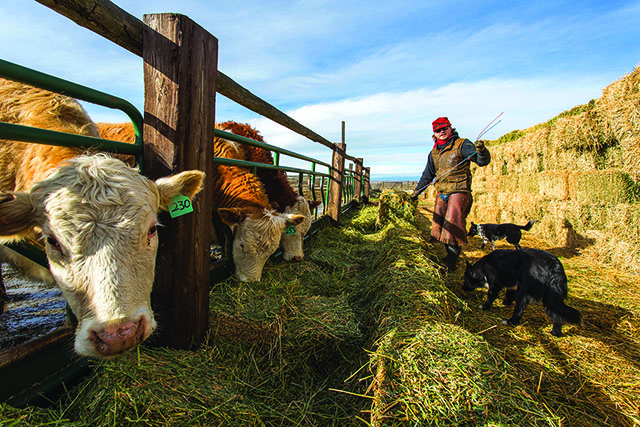
By Barry Whitworth, DVM
In January, I attended the Oklahoma Veterinary Conference. While waiting for one of the sessions to start, a classmate of mine commented how many of the attendees walk with a limp, used a cane, and/or have damaged hands. We all agreed that working with animals is hard on the body. In general, anything associated with farming and ranching is dangerous.
Most farmers and ranchers know that agriculture is a dangerous occupation. According to United States Bureau of Statistics, workers involved in agriculture, forestry, and fishing had the highest occupational fatality rate in 2022. The fatality rate of 23.5 per 100,000 full-time equivalent (FTE) workers for this group is much higher when compared to the overall occupation fatality rate of 3.7 per 100,000 FTE. Most of the agriculture-related fatalities are associated with transportation, such as tractor overturns, and vehicle crashes, but a fair number involve livestock.
To read more, pick up a copy of the March issue of NTFR magazine. To subscribe by mail, call 940-872-5922.
HOME
Jesses Jewelz

By Jesse Kader
Comfy and keep it western. That’s the name of the game this month. It’s hot and who wants clingy clothing? This jumpsuit is perfectly comfortable and relaxed without forfeiting the fashion. Dress it up or keep it casual. See this and more at www.jessesjewelz.com.
HOME
Noble Research Institute Expands New Program Offering Farmers and Ranchers the Essentials of Regenerative Ranch Management
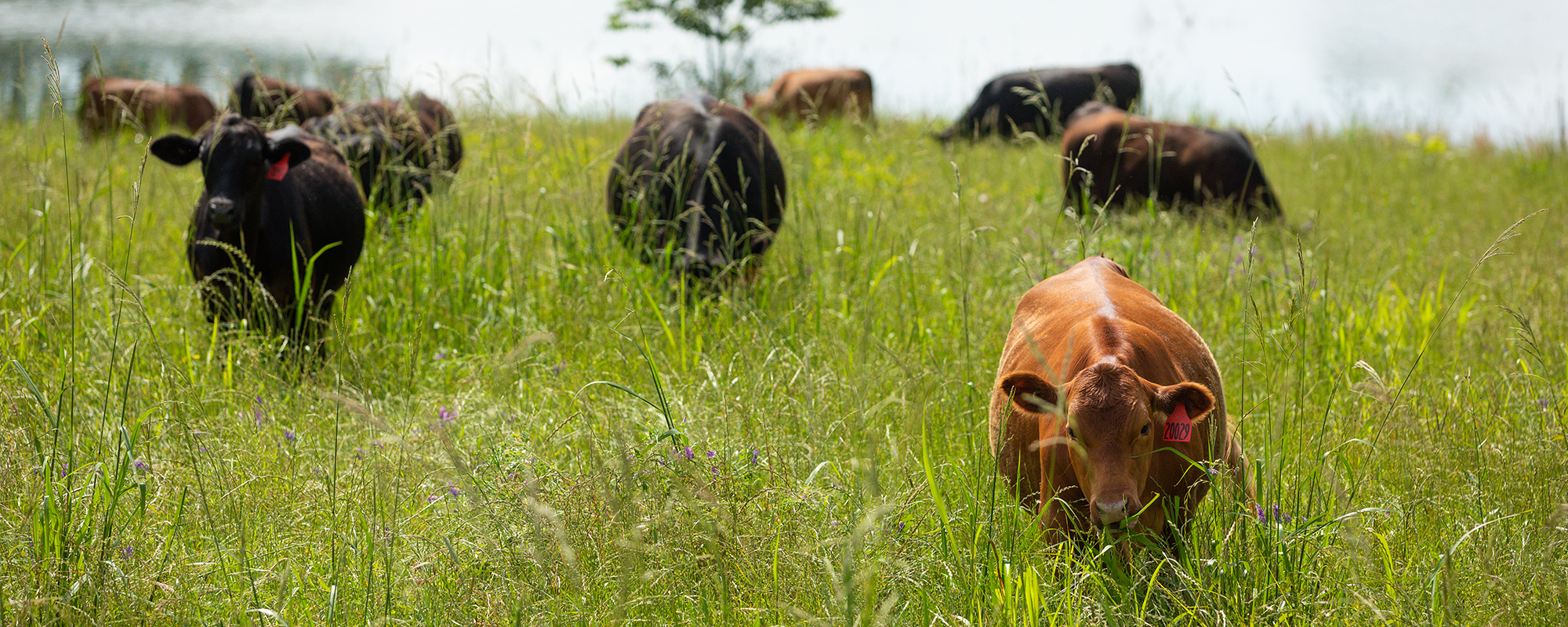
The educational program has been expanded to three new locations, empowering ranchers and farmers to monitor and improve the health of their land, livestock and livelihood through regenerative principles.
ARDMORE, OK–September 12, 2023 – Noble Research Institute announced the expansion of Essentials of Regenerative Ranching, a new educational program designed to help ranchers enhance and restore the land, making it more resilient and reaching livestock grazing goals through regenerative management. Essentials of Regenerative Ranching provides producers with practical tools, hands-on experience and guidance to make data-driven decisions to decrease costs and improve profit.
The Essentials of Regenerative Ranching course has been expanded to three new locations in Texas and Oklahoma. Registration is open now at www.noble.org/essentials. Seating is limited, so early registration is recommended.
Texas A&M
College Station, Texas
October 17 – 18
O.D. Butler, Jr. Animal Science Complex
Noble Research Institute
Ardmore, Oklahoma
October 31 – November 1
Pavilion Center
Texas A&M
Kingsville, Texas
November 7-8
Caesar Kleberg Wildlife Center
“Program participants gain working knowledge and experience of monitoring and improving the health of their soil, grazing livestock more strategically and making informed financial decisions,” said Hugh Aljoe, Noble Research Institute’s director of ranches, outreach and partnerships. “We use a mix of classroom and field work to send producers home with the tools they need to begin making changes on their ranch.”
Farmers and ranchers navigate uncertainty from weather, fluctuating market prices and escalating costs of inputs. Many producers are seeking new tools that offer greater control and reduce their operational uncertainty. Through this course, ranchers and farmers will calculate their financial situations, determine initial stocking rates, carrying capacity and grazing goals.
“The course is well-suited for ranchers of all experience levels and all types and sizes of operations,” Aljoe added. “No matter your situation, this program will transform the way you think about your ranch.”
The Essentials of Regenerative Ranching program allows producers to overcome obstacles, become more informed problem-solvers and increase the productivity of their grazing lands. By participating in this program, ranchers join a community of like-minded producers who are shaping the future of ranching and leaving a lasting impact on their land and families. “If I had known what I learned in this course when I started my regenerative journey, I could have avoided some key mistakes,” said Tana McCarter, a rancher, and Essentials attendee. “I left with the tools I needed to monitor my soil health and financial progress. I’ll now have the right data to make informed decisions on how to meet my regenerative goals.”
Noble Research Institute is an independent nonprofit agricultural research organization dedicated to guiding farmers and ranchers in applying regenerative principles that yield healthier soil, more productive grazing land, and business success.
At Noble, researchers, facilitators and ranch staff work together to share with farmers and ranchers the skills and tools to regenerate the land in a profitable manner. Noble is focused on the regenerative management of the nation’s grazing acres, which directly impacts pasture and range environments, wildlife, pecan production, and livestock production. Regenerative management recognizes that each decision made on the ranch impacts the interactions of the soil, plants, water, animals, economics and people. Noble’s 14,000 acres of working ranch lands provide a living laboratory on which to demonstrate and practice regenerative principles and ideas to deliver value to farmers and ranchers across the U.S.
-

 Country Lifestyles1 year ago
Country Lifestyles1 year agoScott & Stacey Schumacher: A Growth Mindset
-

 Equine7 months ago
Equine7 months agoThe Will to Win
-

 Country Lifestyles7 years ago
Country Lifestyles7 years agoStyle Your Profile – What your style cowboy hat says about you and new trends in 2017
-

 Country Lifestyles4 years ago
Country Lifestyles4 years agoAmber Crawford, Breakaway Roper
-

 HOME7 years ago
HOME7 years agoGrazing North Texas – Wilman Lovegrass
-

 Country Lifestyles7 years ago
Country Lifestyles7 years agoDecember 2016 Profile, Rusty Riddle – The Riddle Way
-

 Country Lifestyles8 years ago
Country Lifestyles8 years agoJune 2016 Profile – The man behind the mic: Bob Tallman
-

 Outdoor9 years ago
Outdoor9 years agoButtercup or Primrose?

